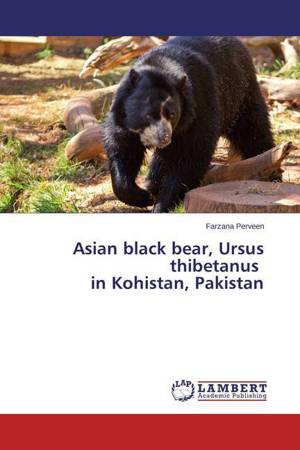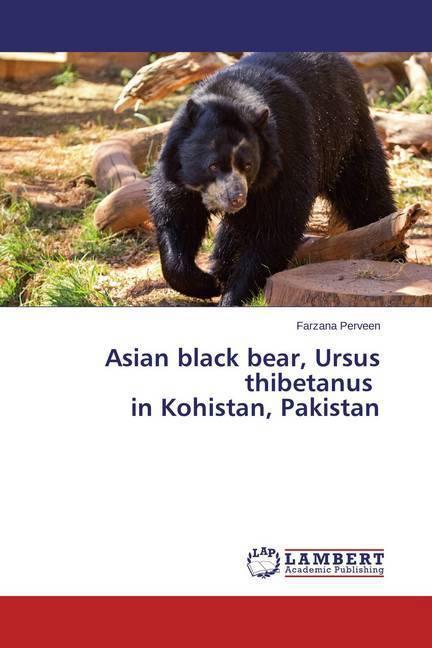
- Afhalen na 1 uur in een winkel met voorraad
- Gratis thuislevering in België vanaf € 30
- Ruim aanbod met 7 miljoen producten
- Afhalen na 1 uur in een winkel met voorraad
- Gratis thuislevering in België vanaf € 30
- Ruim aanbod met 7 miljoen producten
Zoeken
€ 61,45
+ 122 punten
Omschrijving
Asian black bear, Ursus thibetanus Cuvier was widely distributed throughout Pakistan few decades ago, but now it is vulnerable. The present research was conducted to know about its population and human-bear conflict (n=120) in the Palas valley, Kohistan, Pakistan during May-July 2010. During the survey, 3 black bears were seen directly at 2 places, fecal materials were collected at 5 places and footprints were found at 6 places. 12 people incidentally sighted it. It is common in its population was increasing (66.7%) and became the highest during June-August (47.5%). The biggest problem of livestock of people was predation by U. thibetanus (60%). People mostly hunted it due to its crop raiding (57%) and attacking on the livestock (39%). It attacked different crops by tearing and eating (73%), on fruiting (75%) of maize, Zea mays L., in early morning (48%) and recognized by footprints (76%), therefore, people stayed at night in fields to prevent their crops (57%). The highest population was found in summer (48%). Damage compensation schemes should be launched in the area to control the retaliatory killings and conserve the declining population of U. thibetanus. Total 29 U. thibetanus
Specificaties
Betrokkenen
- Auteur(s):
- Uitgeverij:
Inhoud
- Aantal bladzijden:
- 132
- Taal:
- Engels
Eigenschappen
- Productcode (EAN):
- 9783659631207
- Verschijningsdatum:
- 3/11/2014
- Uitvoering:
- Paperback
- Afmetingen:
- 150 mm x 220 mm
- Gewicht:
- 204 g

Alleen bij Standaard Boekhandel
+ 122 punten op je klantenkaart van Standaard Boekhandel
Beoordelingen
We publiceren alleen reviews die voldoen aan de voorwaarden voor reviews. Bekijk onze voorwaarden voor reviews.











